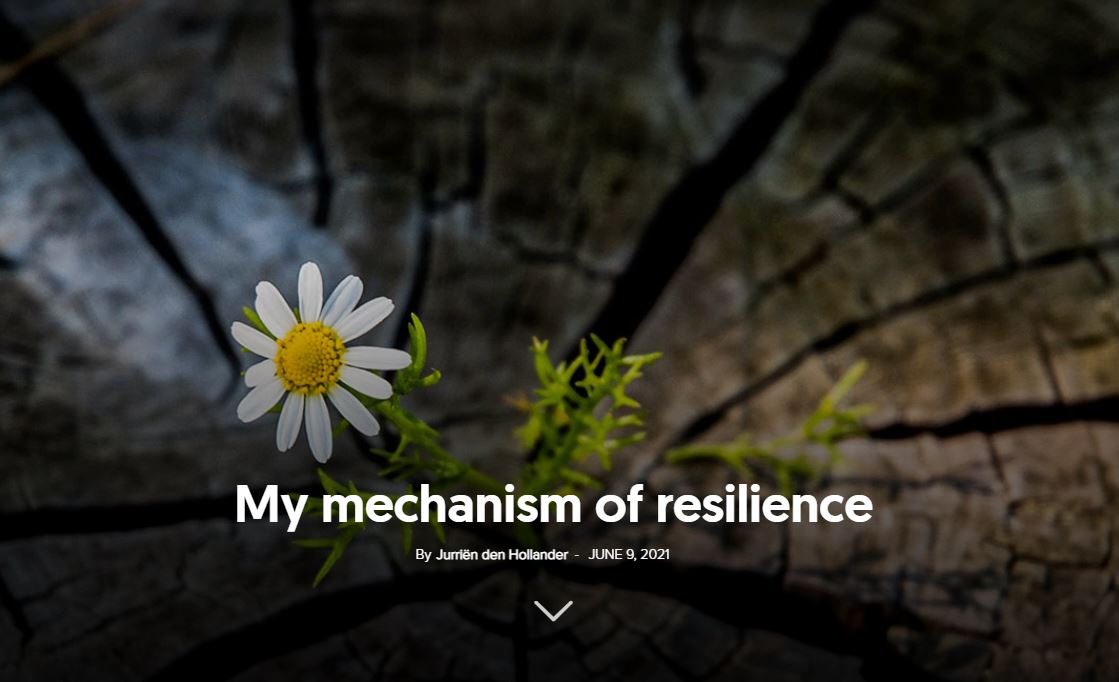Change is the only constant in life, especially the kind that comes unexpectedly and makes us believe that we cannot give in to it without giving up on ourselves, or turning into something we are not.
Nearly fifty years ago, psychologist Salvatore Maddi was surprised to find that readers of Family Circle, an American magazine, were urged to reduce stress by avoiding change of any kind. The idea contradicted the results of his research, which showed that people are more creative and ingenious if they have extensive life experience and are exposed to environmental fluctuations.
Determined to unravel the mystery, Maddi began extensive research, carried out for more than twelve years. Together with a team from the University of Chicago, he turned his attention to the employees of the Bell Telephone Company, a giant at the time, subject to the imminent loss of market monopoly.
During the reduction in the company’s activity, the researchers observed all the changes experienced by the hundreds of employees, both in their personal lives and at work. After six years, almost half of them lost their jobs but continued to be monitored in the study.
The conclusions turned out to be fascinating: most of the people that were laid off, but also most of those retained in office, were deeply affected by the results of the company’s decline. Some became ill, others committed suicide, others became addicted to drugs, alcohol, or gambling. Only one in three employees positively assimilated the change. And they did it without being smarter, more sophisticated or better prepared than the others. What was the secret of those who succeeded?
Nothing is nailed down
Whether they kept their job or found a new one, those able to adapt chose to capitalize on the given situation and take a step forward. Conversely, the employees brought down by change developed a debilitating nostalgia for the past, an anxiety about the present, and reservations about the future; they began to obsessively search for a reason for the decline, longing for a lost reality.
They did what we all do when we go through unwanted changes: they wondered why.
Successful employees also looked for explanations, reasons, and connections to dispel the fog. However, they did not limit themselves to this search, but instead exhibited one of the greatest lessons of resilience: instead of obsessively wondering why bad things happen to good people, they wondered what good people do with the bad things that happen to them.
For decades, psychologists have argued that turning people back in time as a way to explain their negative events is an important part of the healing process. However, new research shows that victims who do not explicitly look for reasons for suffering recover more easily than those who dig up the past for this purpose.
Going back to ourselves, what can we say? How do we react to unwanted changes? How do we live with the losses, the upheavals, and the surprises? Most of the time we are overwhelmed by events. We are frightened by the thought of pursuing initiatives that do not belong to us. We are disturbed by what we cannot control.
Sometimes, even positive changes raise problems, because they make us think, feel, and act differently than we are used to. Our brain doesn’t like change. It does not like to be taken by surprise, or need to strive to integrate novelty. Instead, it likes patterns and routines. Hence, the conflict between our desire for consistency and the unpredictability of life, under which nothing is nailed down: neither comfort, nor friendships, nor work, nor health, nor life as it is today, and tomorrow slips subtly between our fingers.
Still, how do we embrace change without becoming what we are not?
The edge of the abyss and tragic optimism
Returning home after three years in a Nazi camp, Viktor Frankl discovered that all his loved ones—his mother, brother, wife, and unborn child—had died. Life as he knew it had completely collapsed, and the days seemed to flow in vain. In the midst of despair, time taught him how to cultivate hope through the action of what he himself would call “tragic optimism”: the effort to get around the edge of the abyss despite suffering, guilt, and death.
The example of the Viennese psychiatrist is extreme, but his experience shows that even the harshest falls can be repaired if we are not intimidated by change; if we understand that sometimes, by choosing not to change, we become what we are not—sure victims of our circumstances that rob us of our joy.
“When we are no longer able to change a situation, we are challenged to change ourselves.” Viktor Frankl
As in the case of Frankl, fighting for the future is one of the first conditions of survival. Its opposite is renunciation, the blockage which occurs when we associate an undesirable situation with a sentence definitively pronounced against us personally; against the happiness, security, well-being, and beliefs that represent us.
Focusing on values, not fears, is another factor that softens change. Fears are cruel, slippery and circumstantial, but values have a superior source and give us the energy to face obstacles. The call to what we sincerely value in life—family, spiritual gifts, love, aspirations for self-realization—helps us to reconfigure our path in the most difficult moments; it reminds us that what is truly important rises above the belief that we have reached the end of our power.
Confidence carries us further
On the other hand, there is the myth that repetitive verbalization of negative emotions reduces the discomfort, suffering, or confusion caused by change. The popularity of the approach is unjustified, because the emphasis on emotions does nothing but hinder the process of adaptation. As an alternative, specialists recommend verbalizing the concrete, objective data of the problems, without ignoring the emotional part. In this way we will separate the real obstacles from the apparent ones, arriving at good solutions to put into practice.
Longitudinal studies show that, regardless of age, people adapt more easily to the new if they “consult” their inner universe and spend at least 10 minutes writing about how a fundamental component of their set of values has improved their existence.
Our reaction to stress also influences our ability to cope with change. Kelly McGonigal, a psychologist at Stanford University, says that if we live under the impression that stress will kill us, then stress will kill us. And, if we live under the impression that stress will make us more resilient, then stress will have this very effect on us.
Flexibility and humour are two other dynamic traits that, engaged in the great mechanism of assuming reality, work in our favour, helping us to process change.
In extreme conditions, however, we cannot look indulgently at difficulties, nor can we make fun of trouble, as we do when challenges are light. Everything has a limit because in such situations only confidence carries us further—the certainty that we will know who we are, even in the darkest scenarios that life could write for us without telling us why.
Genius Ruscu tries to capture the key elements that can help us to survive unwanted changes, to accept them as such, and to capitalize on them, without losing the essence of our inner self.
You may also want to read:




















